You’ll find exceptional mixed reality platforms that transform your digital art practice. Artivive lets you embed AR content into physical artwork, while Unity and Unreal Engine 5 provide professional-grade tools for creating immersive 2D and 3D experiences. Meta Horizon Worlds enables real-time collaboration with global artists in social VR spaces, and NVIDIA Omniverse connects industry-standard applications for seamless 3D workflows. ArtPlacer helps you visualize artwork in real-world environments. These innovative platforms open up creative possibilities you haven’t yet explored.
Artivive: Bringing Physical Art to Life Through AR
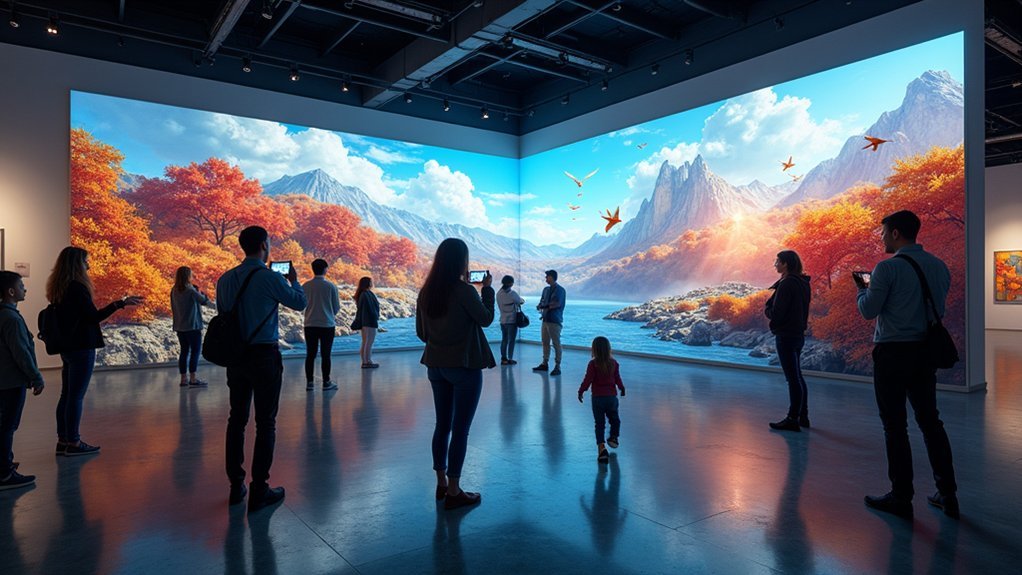
When you point your smartphone at a static painting or sculpture, Artivive transforms that traditional artwork into a dynamic, interactive experience through augmented reality.
You’ll upload images, videos, and 3D models through the intuitive app, creating immersive experiences that enhance your physical art pieces. With over 600,000 AR artists in their global community, you’re joining a thriving network of digital artists pushing creative boundaries.
The platform reveals new dimensions of artistic expression, letting you engage audiences through unique storytelling methods. You can showcase your creations and apply for open calls to gain exposure.
When viewers scan your artwork with the Artivive app, they’ll activate AR features that transform traditional art forms into interactive experiences, revolutionizing how people consume and appreciate art.
Unity and Unreal Engine 5: Professional Mixed Reality Development
As you advance beyond entry-level AR tools, Unity and Unreal Engine 5 emerge as the industry standards for professional mixed reality development.
Unity’s versatility shines through its support for 2D and 3D experiences across 20+ platforms, while its specialized XR Development tools help you create truly immersive experiences that captivate audiences.
Unreal Engine 5 pushes digital art boundaries with Lumen’s dynamic global illumination and Nanite’s high-fidelity geometric detail, enabling stunningly realistic environments.
Unreal Engine 5’s Lumen and Nanite technologies revolutionize mixed reality by delivering unprecedented visual fidelity and photorealistic environments.
Its new animation tools and MetaSounds audio system enhance interactive storytelling potential for mixed reality projects.
Both platforms offer extensive asset stores filled with free and paid resources, streamlining your development workflow and accelerating your creative process in the expanding mixed reality landscape.
Meta Horizon Worlds: Social VR Art Experiences
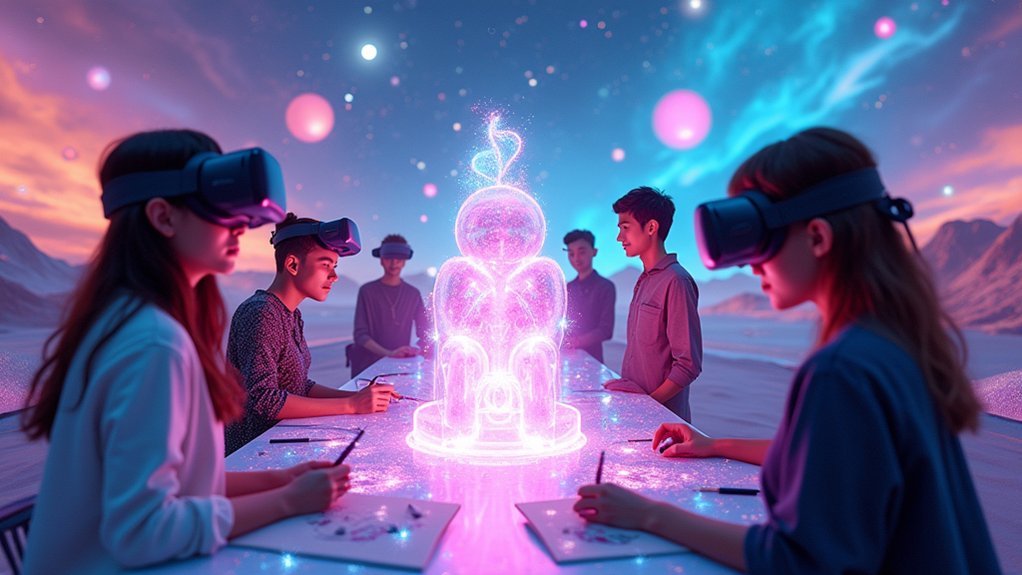
Meta Horizon Worlds transforms digital artistry into a collaborative social experience where you’ll create immersive virtual environments alongside other artists in real-time. This social VR platform gives you powerful technology to create interactive experiences that showcase your artistic vision while connecting with a global community of creators.
You’ll design immersive art experiences using the platform’s game creation system, customize your avatar for authentic representation, and showcase finished works in Horizon Venues where major acts like BLACKPINK have performed. The platform’s Safe Zone and Voice Mode features guarantee you’ll work in a secure environment while collaborating on virtual reality projects.
| Feature | Artist Benefit | Creative Application |
|---|---|---|
| Real-time Collaboration | Work with global artists | Joint sculpture projects |
| Game Creation System | Build interactive art | Playable art installations |
| Avatar Customization | Personal representation | Performance art pieces |
| Horizon Venues | Showcase platform | Virtual gallery exhibitions |
| Safety Features | Secure creative space | Protected artistic workshops |
NVIDIA Omniverse: Collaborative 3D Art Creation
While Meta Horizon Worlds excels at social VR experiences, NVIDIA Omniverse revolutionizes collaborative 3D art creation by connecting industry-standard creative applications through Pixar’s Universal Scene Description (USD) framework.
You’ll access powerful tools that transform how digital artists collaborate on immersive experiences:
- Integrated Development Environment – Build custom applications that enhance collaborative workflows across teams
- DeepSearch AI – Find 3D resources instantly using AI technologies for faster project development
- Omniverse Replicator – Generate synthetic data to train machine learning networks for data-driven art projects
- Avatar Technology – Create realistic digital characters with advanced animation capabilities
This platform enables you to produce stunning art while working seamlessly with colleagues in real-time.
You’ll experiment with cutting-edge AI tools while maintaining full creative control over your digital masterpieces.
ArtPlacer: Visualizing Artwork in Real-World Spaces
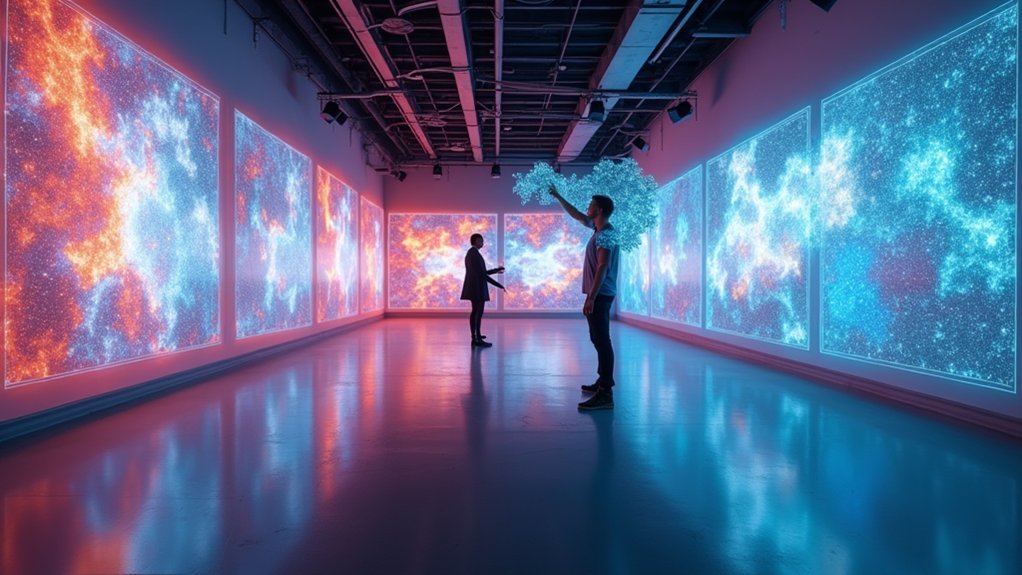
ArtPlacer bridges the gap between digital art creation and physical exhibition by letting you visualize how your artwork will appear in real-world spaces before installation. With over 2600 customizable room mockups, you’ll create an immersive experience that showcases your pieces in realistic environments. The platform’s Smart Spaces feature enables personalizing layouts and wall colors, strengthening your brand image.
| Feature | Capability | Benefit |
|---|---|---|
| AR Mobile App | Real-scale wall visualization | Enhanced buyer confidence |
| 3D Virtual Exhibitions | NFTs and video support | Reaches global audience |
| Room Mockups | 2600+ customizable spaces | Professional presentation |
ArtPlacer’s Augmented Reality technology helps collectors make informed decisions by viewing artworks in their actual spaces. You’ll seamlessly blend physical and digital art forms while maintaining accessibility—no technical skills required for visualizing your creative vision effectively.
Frequently Asked Questions
Which Platform Is Best for Digital Art?
You’ll find Unity’s the most versatile choice for digital art creation. It supports multiple platforms, offers AI-assisted tools, and handles both 2D and 3D projects effectively, making it adaptable to your artistic vision.
What Apps Do Most Digital Artists Use?
You’ll find most digital artists use Photoshop for 2D work, Blender for 3D modeling, and Procreate on tablets. They’re also adopting Unreal Engine, Unity, and AR apps like Artivive for immersive experiences.
What Is the Best Platform to Sell Digital Art On?
You’ll find Etsy’s the best starting platform for digital art sales due to its massive audience and user-friendly interface. For NFTs, choose OpenSea, while Society6 works perfectly for passive income through product licensing.
What Platform Do Most Artists Use?
You’ll find most digital artists gravitate toward Unreal Engine 5 and Unity for their extensive features. Roblox attracts creators seeking broader audiences, while Meta Horizon Worlds appeals to those wanting collaborative social experiences.
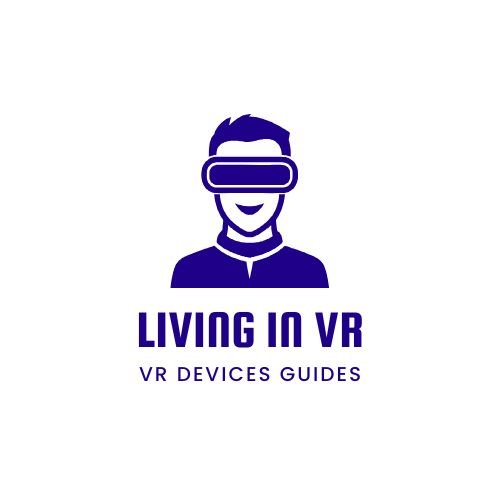
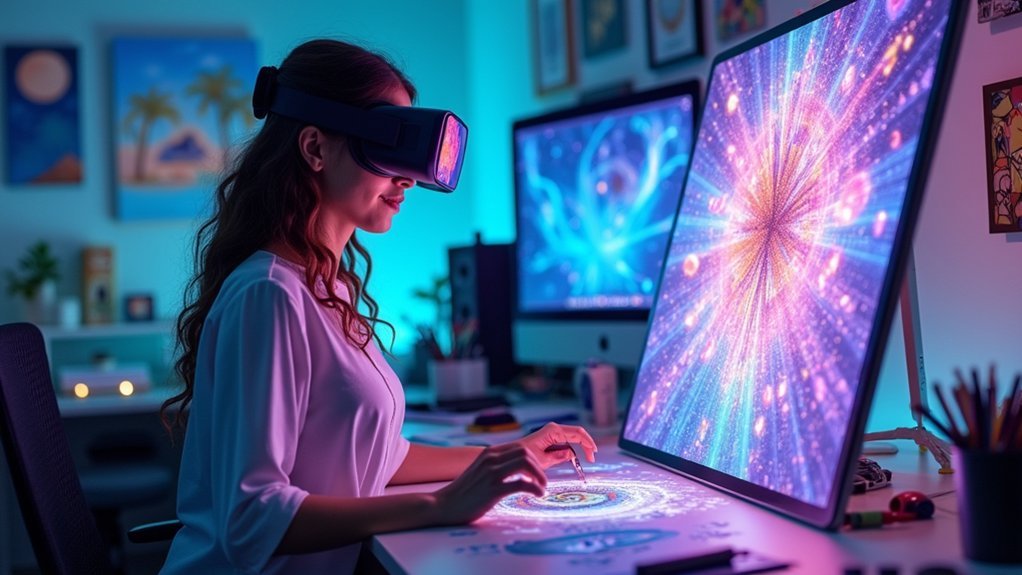
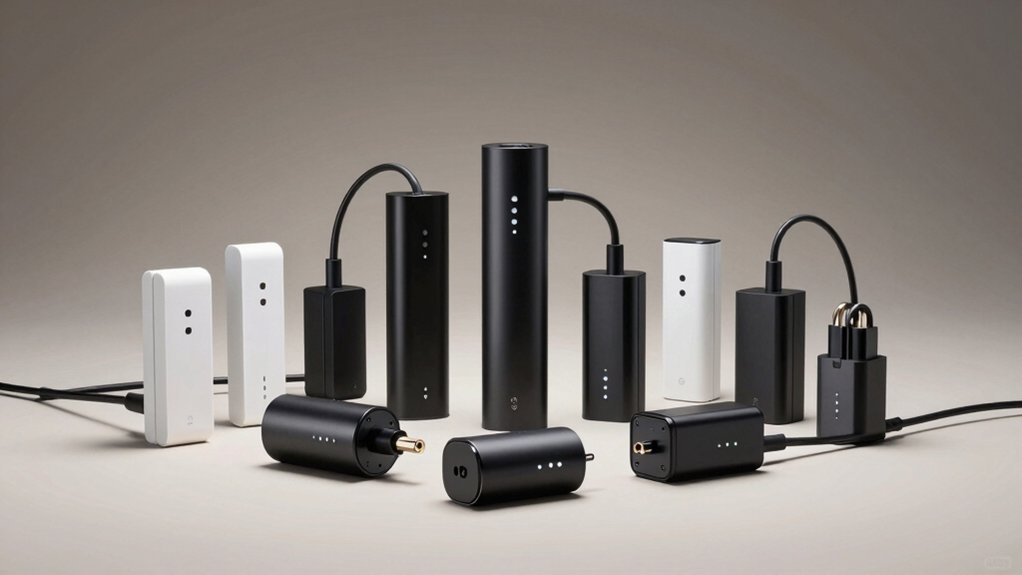
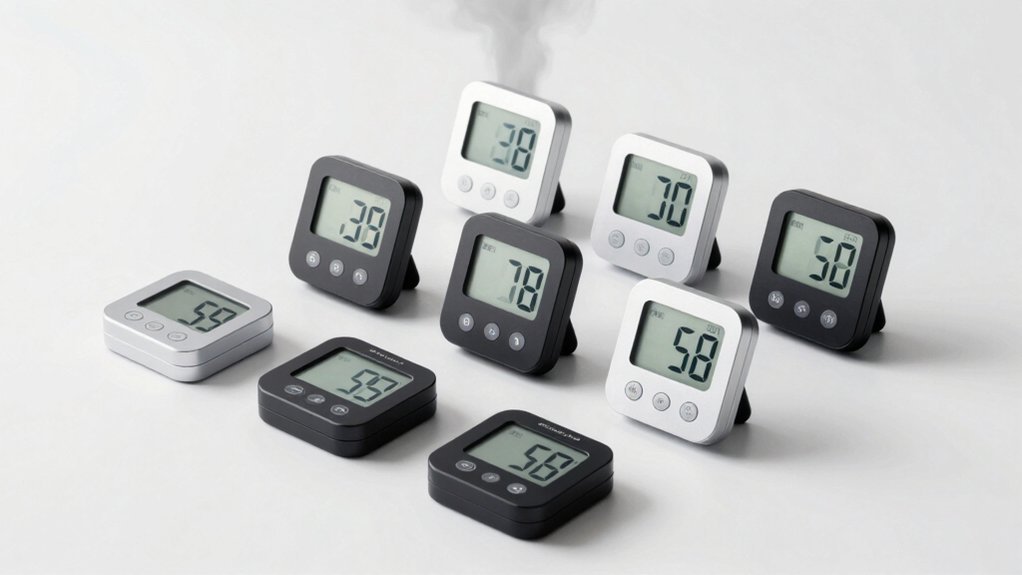

Leave a Reply